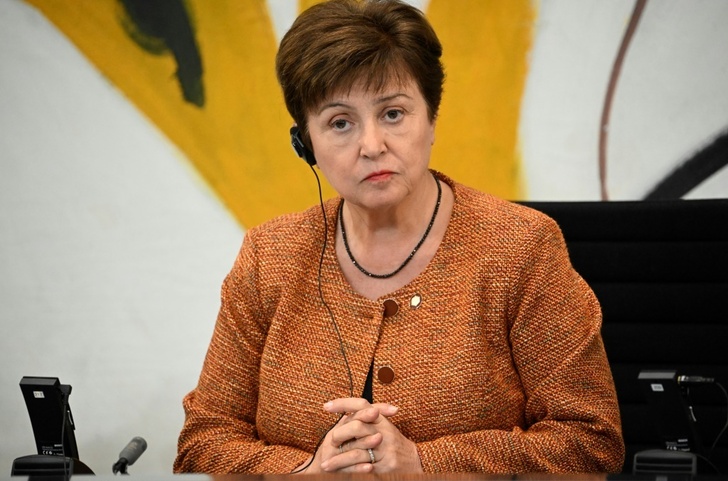A new fund helping low-income countries tackle the impacts of climate change already has around $40 billion worth of commitments, but this is "nothing in comparison with the needs," IMF chief Kristalina Georgieva said Tuesday.
Several countries have won loan deals from the International Monetary Fund's Resilience and Sustainability Trust (RST), but global leaders are urging that more be done to aid nations grappling with the costly fallout from climate change.
"If we do nothing to move financing... by 2030, 66 percent of carbon emissions will come from the developing world," Georgieva said in an interview with AFP.
"If we want to succeed in our fight against climate change, it is paramount to move financing to where it would make a difference," she added, on the sidelines of a panel discussion on the RST.
For now, the three countries that have crossed the finish line with RST financing are Costa Rica, Barbados and Rwanda, while a deal with Bangladesh is headed for further approval.
"The interest is very significant from both low-income countries and vulnerable middle-income countries, especially small island states," Georgieva said.
She added that the IMF expects more members to commit resources "so we don't end up having to ration support for countries."
At the panel in Washington, Barbados Prime Minister Mia Mottley said long-term capital is needed for many issues, adding that debt sustainability metrics could be revisited.
"Every dollar of debt is not equivalent. A dollar of debt to build a school does not give me the same rate of return as quickly as a dollar of debt to build a geothermal facility," she said.
World Trade Organization Director-General Ngozi Okonjo-Iweala also stressed at the event the importance of supply chains when it comes to building resilience in developing countries.
"Supply chains for certain products are highly concentrated. Eighty percent of vaccines are exported from 10 countries," she said, adding that similar situations may apply to items like solar panels and chips.
"Why can't we... diversify manufacturing... so we have supply chains that are global, and diversified, and more resilient?" Okonjo-Iweala said.
bys/mlm
© Agence France-Presse
Your content is great. However, if any of the content contained herein violates any rights of yours, including those of copyright, please contact us immediately by e-mail at media[@]kissrpr.com.
Source: Story.KISSPR.com

